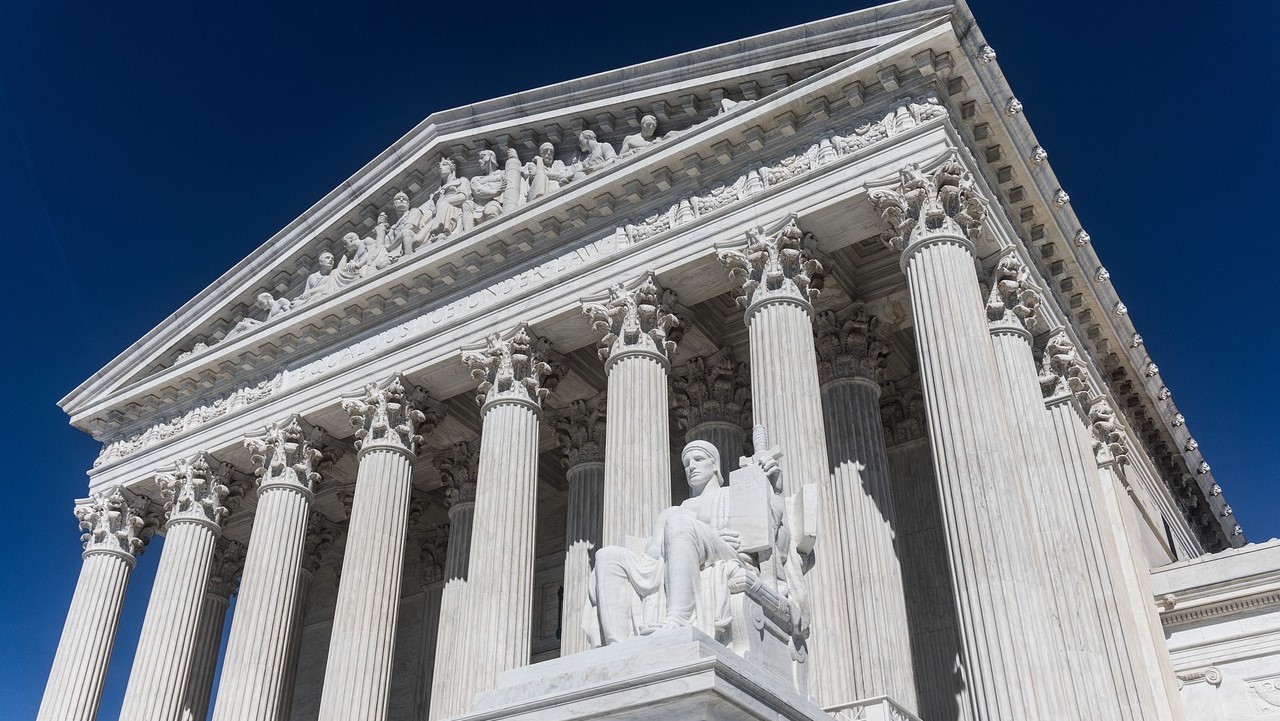Globally, the use of cannabis for recreational or medical purposes has been illegal until recently. Cannabis and the law have a long love-hate relationship, but change is on the horizon for the plant. Most countries review their policies, allowing cultivation, supply, and possession under supervised circumstances. However, some countries are still conservative, and cannabis use is a crime punishable by long-term imprisonment.
It is essential to familiarize yourself with a country’s policies to avoid being on the wrong side of the law. As a result, several countries have included some permits and reduced penalties, allowing citizens to use the plant sparingly. Unfortunately, the policies and conflicting claims are not as straightforward as one would hope, especially regarding the decriminalization or legalization of cannabis.
In regions like North America, South America, Europe, Australia, and Africa, cannabis is gradually being decriminalized and permitted for medical purposes only. On the other hand, in the Middle East and Asia at-large, cannabis remains prohibited. This quick guide aims to summarize cannabis laws and related issues worldwide. Generally, when visiting a new country you should always confirm whether you can use cannabis freely.
In the Americas…
In the USA, despite being an illegal plant under federal law for decades, cannabis is now legalized in 35 states, as well as the District of Colombia, for medical use. As more people embrace the idea of legalizing cannabis, more states will allow cannabis for medical, industrial, and recreational uses.
Most people opposed the use of cannabis, as it was formerly associated with public health risks and increased crime. However, the medical sector is working tirelessly to understand the efficacy of cannabis in treating symptoms associated with ailments such as chronic pain, anxiety, depression, insomnia, to name just a few.
Historically, cannabis laws directly affected individuals from minority communities facing severe jail terms for possession. As these laws are being reviewed, mass incarceration and discrimination related to them decrease. As the cannabis industry grows, so do opportunities for entrepreneurship.
A new dawn of cannabis demand in states including Alaska, Oregon, California, *Washington D.C., Maine, Massachusetts, Nevada, Vermont, Michigan, New Jersey, Montana, Guam, Arizona, Illinois, Connecticut, New York, New Mexico, and Virginia has improved the lives of residents both medically and economically.
However, before you whip out your bong or vape to smoke, you should always exercise caution and remain discreet, even if the state has legalized it. Not everyone embraces the new trend, and many still hate the smell of cannabis. On the other hand, in countries like Jamaica, Costa Rica, Uruguay, Ecuador, Argentina, Belize, and Peru, you can smoke your joint comfortably.
Across the Pond…
Europe seems to have exciting opportunities for multi-national cannabis companies looking to sell medical and recreational products. However, legalizing cannabis in Europe is still debatable, as some countries embrace it widely and others shy away from it. Nonetheless, most European countries have a long history of advocating for the legalization of cannabis for medical purposes.
In countries such as Croatia, Ukraine, Spain, Czech Republic, Malta, Germany, Italy, Luxembourg, Portugal, Switzerland, and Russia, cannabis is legal in some shape or form, while the rest of the continent still prohibits it. Despite cannabis being legal in these countries, you should avoid vaping or smoking in public. Cannabis has a strong and distinctive smell that is a dead giveaway. This can be risky if you are caught in jurisdictions with strict anti-cannabis laws.
The police might let you go with a warning if caught in possession of small quantities intended for private use, but you may not always get lucky. Of course, Europe isn’t as strict as the US, but you should avoid transporting large amounts with commercial intent.
Bear in mind that the stigma around cannabis is still rampant, and people haven’t yet fully embraced the plant. However, people’s perceptions are changing thanks to improved access to medical cannabis, as well as the plant’s medicinal and economic benefits. Regardless, it might be a while before cannabis is generally accepted in most or all European countries, primarily due to biases within political parties.
Asia from the Middle to the Far East
Alright, so … basically, this is such a hot zone to the extent that it’s probably best to never even consider trying cannabis. As recently as 2020, Lebanon became the first country to legalize cannabis for industrial and medical use in the Middle East. In other parts of the Middle East and associated Arab countries, cannabis is strictly prohibited and considered a serious offense if caught in possession. Understandably, these countries have limitations that prevent research on the therapeutic benefits of cannabis due to strong religious beliefs, a lack of financial support, and strict legal regulation.
In the rest of Asia, Thailand was the first South Asian country to legalize cannabis and remove it from its list of controlled drugs in 2018. The Office of the Narcotics Control Board (ONCB) approved the motion to decriminalize weed only for personal use. Use for commercial purposes requires special permits.
As of this writing, Israel is in the process of decriminalizing cannabis and awaits approval of new regulations. Championed by President Isaac Herzog and Justice Minister Gideon Sa’ar, Israel is facing the beginnings of expunged records for offenders convicted of using cannabis. The movement will decriminalize cannabis within the country’s borders and create opportunities for economic prosperity.
It is generally held that Cannabis sativa originated in the north Indian mountain range and ancient China. Ironically, while the plant’s history is deeply rooted in these Asian countries, legalization remains elusive. Hopefully, Thailand, Lebanon and Israel will set a good example for the rest of Asian countries and encourage them to reconsider their stance on legalizing cannabis.
Though illegal in Cambodia, India and Laos, there is a relaxed attitude among locals toward the use of cannabis. However, foreigners generally don’t get the same treatment as locals. Once you arrive in these areas, confirm the legal status of cannabis, and follow the rules. Most times foreigners are treated harshly, and it’s wise to leave your weed at home when visiting Asian countries.
Down Under…
Recreational cannabis remains illegal in Australia despite the consistent use of the plant by millions of citizens every year. In a recently held federal election, the majority voted to legalize cannabis. Medical cannabis was legalized officially in 2016, but the country is yet to accept cannabis without any stigma.
In New Zealand, there’s no better news. The country held a cannabis referendum in October 2020 alongside the general elections. The majority voted not to legalize cannabis for recreational purposes, and won by a hair (50.7%). This means recreational cannabis remains illegal. The private use of medical cannabis, however, is legal. On 1 April 2020, regulations in the Misuse of Drugs Act 1975 allowed the prescription of cannabis products for medical use. However, do note that the authorities reserve the right to decide who to prosecute if arrested for possession. So, it may be safe to acquire a permit for a prescription and only use it in private spaces.
A Look at the Cradle of Humankind
African communities are conservative, and most of them prohibit the use of cannabis with severe consequences for individuals breaking the law. Yet, in another irony, African farmers have been secretly growing the plant for centuries. Since the news of legalizing cannabis worldwide is fast spreading, some African countries are also revisiting their established laws.
With the global demand for medical, recreational, and industrial cannabis, there is significant opportunity for legal cannabis to benefit Africans. The global economic demand is expected to exceed $43 billion by 2024. This would improve the national accounts of most of these developing countries.
Traditionally, many African countries relied on exporting maize/corn, cocoa, cotton, coffee, tea, and other crops that have proven unreliable as a source of income. African environments have favorable climatic conditions suitable for cannabis cultivation. With swathes of arable land, high rainfall, and warm weather, Africa can supply growing demand in European markets.
This also makes economic sense since most African countries can produce large quantities without a strong need for greenhouses and other infrastructure which can increase production costs. Moreover, if most African countries lift the ban, they can compete against established cannabis distributors like Canada, America, and The Netherlands.
Cannabis corporations have expressed interest in setting up farms and processing plants in Africa. Furthermore, legalizing cannabis opens the gates to lucrative income, creates job opportunities, emphasizes the presence and role played by the continent in global markets, as well as other developments to the continent.
Lesotho is noted as the first African country ever to legalize cannabis cultivation (under license) for medical purposes in 2008, as set out in the Drugs of Abuse Act 2008. In 2017, Lesotho became the first African country to offer an administrative license for industrial, medical, and scientific purposes. In addition, a few other countries such as Malawi, South Africa, Zambia, Uganda, Rwanda, Ghana, and Zimbabwe have legalized cannabis production (albeit with some limits).
In May 2021, the Zambian government passed two laws: the Cannabis Act 2021 and the Industrial Hemp Act 2021. These regulations followed a cabinet decision to allow commercial production and export of cannabis for medical and industrial uses. This stems from recent concerns about a growing debt crisis. With the new cannabis laws, the government expects economic growth in coming years.
Countries like Malawi and Zimbabwe are major tobacco exporters, and both share similar economic expectations as Zambia from the cannabis economy. Furthermore, tobacco has left a destructive footprint in these countries, and cannabis will be a better option. In September 2020, Zimbabwe’s health minister, via the new Law of Statutory Instrument 218 of 2020 and the Agricultural Marketing Authority, allowed individuals and companies to apply for licenses to cultivate cannabis for research and medical purposes only. Uganda and Rwanda are only focused on growing the plant strictly for foreign markets.
In a historic 2018 ruling, the Constitutional Court of South Africa decriminalized the private cultivation and use of cannabis. There are, however, limits to the amount of cannabis flowers permitted per person. An amendment of the Medicines and Related Substances Act 1965 in May 2020 legalized the use of cannabis for industrial purposes.
In March 2021, Morocco approved a bill authorizing the use of cannabis for cosmetic, medical and industrial uses. The bill paves a way to legalize cannabis for medical purposes and regulate mass production.
Other countries like Egypt, Tanzania, and Kenya are also considering cannabis exports, but the plant remains illegal until further notice. However, since cannabis production is a booming industry, unyielding nations might soon join the movement and lift the stiff regulations for citizens.
Since cannabis is still highly stigmatized across the continent, governments should sponsor more research and disseminate valuable information about cannabis to ordinary citizens in order to change attitudes. Most of the traditional beliefs about cannabis are influenced by anecdotal evidence linking addiction, crime, poverty, and prostitution to drug use. However, politicians and policymakers alike may disabuse themselves of outdated beliefs, and embrace cannabis production for national benefit, with a proper education on what the plant is and what it can be used for.
Closing thoughts…
As more people learn about the immense benefits of cannabis, the hostility may gradually fade, thus opening people up to its potential. However, most countries are still critical and require more research and convincing to get them on board with the idea. It may be a while before this happens, but there is hope that cannabis may one day dominate the world’s global markets.
Familiarize yourself with the local laws of your country or the region you’ll be visiting in order to avoid finding yourself at odds with the law. Note that some countries treat tourists with hostility, you may want to avoid becoming a statistic. However, for the countries that have legalized cannabis or marijuana, you can smoke away to your lungs’ content — just be discreet about it.




